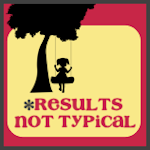It's a post, on a very important topic, but I didn't write it. Please still read it though. Please, please, please. It matters.
Thoughtful Language Can Put People First!
The correct name of this diagnosis is Down syndrome. There is no apostrophe (Down). The "s" is syndrome is not capitalized (syndrome).
An individual with Down syndrome is an individual first and foremost. The emphasis should be on the person, not the disability. A person with Down syndrome has many other qualities and attributes that can be used to describe them.
Encourage people to use people first language. "The person with Down syndrome", not "the Down syndrome person.," A person with Down syndrome is not "a Downs".
Words can create barriers. Recognize that a child is "a child with Down syndrome," or that an adult is "an adult with Down syndrome." Children with Down syndrome grow into adults with Down syndrome; they do not remain eternal children. Adults enjoy activities and companionship with other adults.
It is important to use the correct terminology. A person "has" Down syndrome, rather than "suffers from," " is a victim of," "is diseased with" or "afflicted by."
Each person has his/her own unique strengths capabilities and talents. Try not to use the cliches that are so common when describing an individual with Down syndrome. To assume all people have the same characteristics or abilities is demeaning. Also, it reinforces the stereotype that "all people with Down syndrome are the same."
Here are some basic guidelines for using People First Language:
1. Put people first, not their disability. A "person with a disability", not a "disabled person". A "child with autism", not an "autistic child"
2. Use emotionally neutral expression. A person "with" cerebral palsy, not "afflicted with" cerebral palsy. An individual who had a stroke, not a stroke "victim".
3. Emphasize abilities, not limitations. A person "uses a wheelchair", not "wheelchair bound". A child "receives special education services", not "in special ed".
4. Adopt preferred language. A "cognitive disability" or "intellectual disability" is preferred over "mentally retarded". "Typically developing" or "typical" is preferred over normal. "Accessible" parking space or hotel room is preferred over "handicapped".
And just to make it more interesting (and maybe even confusing, but we can talk about it if that's the case), here's some more good info I read on a fellow Mama's blog.
Here's my point for posting this: It's not all about the words you use, though they can hurt when used incorrectly and maliciously. For me, it takes both (though, I admit, I do cringe every time I hear the "r" word, regardless of who says it). If there's no motive to hurt, all that's needed is education. It's not about separation into those that know the "rules" and those that don't. That's not the point. The point is not to hurt people that have done nothing to deserve disdain. The point is to just give a damn, whether it's about the individual that is differently-abled or the family that loves and supports them or the friends that enjoy their company.
I'll have more to say about this later, but this is a good start.
G'night.











1 comments:
awesomeness! It is a whole 'nother language, I admit. But once you learn it, it makes it hard to hear other's who have no clue. And the "R" word...oh my, do I have problems with that one. Can't wait to read what you have to say about it!
Oh- the tutu is from gymboree! :)
Post a Comment